Brexit deal 'possible but very difficult': EU warns UK ahead of crunch talks

Boris Johnson‘s hopes of securing a new Brexit deal are “possible”, according to Michel Barnier - but he warned that it was proving to be “very difficult”.
As the European Union’s chief Brexit negotiator updates MEPs in Brussels on progress towards a deal with the UK, he said the EU will “remain calm, vigilant, respectful - respectful - and constructive”.
However, when asked how likely a deal would be, Mr Barnier told Sky News: “I think the deal is possible and very difficult, but possible.”
Next week’s EU summit is seen as a crucial moment for averting a no-deal Brexit but Irish PM Leo Varadkar has warned his UK counterpart that negotiating a new agreement before then will be "very difficult”.
Mr Johnson’s chances of a breakthrough with Brussels were looking increasingly unlikely on Tuesday after accusations from Downing Street that the EU was making it "essentially impossible" for Britain to leave with a deal.
The PM will hope to gain concessions from Mr Varadkar during in-person talks anticipated later this week.
MPs are set to attend a historic Saturday sitting in the Commons on 19 October – the day after the EU summit that decides how Britain leaves the EU at the end of the month – to debate any deal that may be struck.

What has Mr Varadkar said?
The Irish leader said Ireland and the EU would not accept an agreement at "any cost”.
He told RTE News: "There are some fundamental objectives that haven't changed for the past three years and we need them guaranteed.
"I think it is going to be very difficult to secure an agreement by next week, quite frankly.
"Essentially what the United Kingdom has done is repudiate the deal that we negotiated in good faith with Prime Minister (Theresa) May's government over two years and sort of put half of that now back on the table and are saying, 'That's a concession.' And of course it isn't really.”
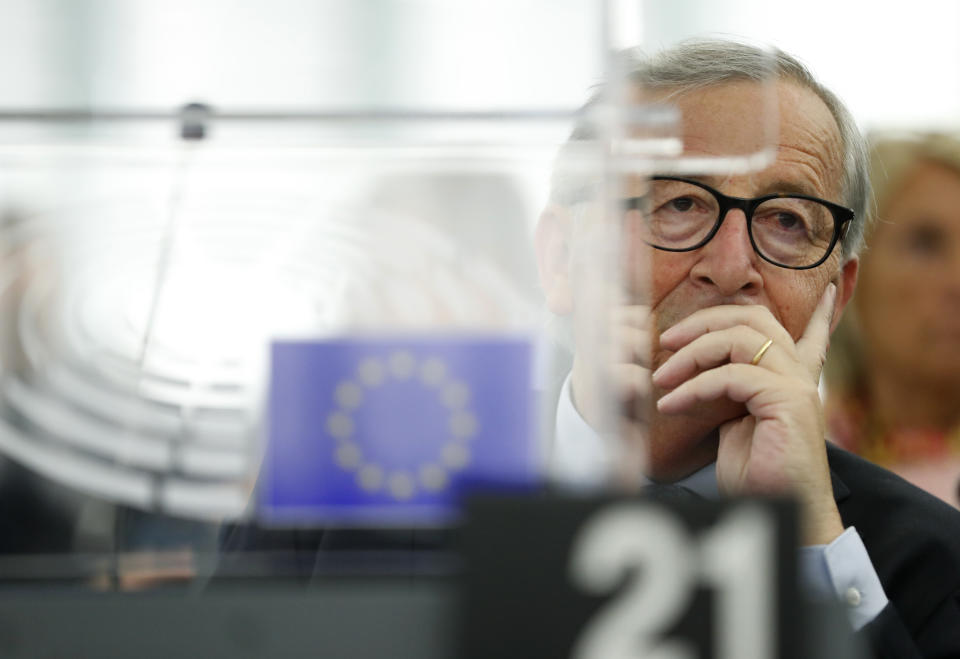
The blame game
There was fury in Brussels following a series of Downing Street briefings claiming that German Chancellor Angela Merkel had made clear a deal was now "overwhelmingly unlikely”.
No 10 sources claimed Mrs Merkel had told the PM that Britain could not leave the EU unless it was prepared to leave Northern Ireland behind in a permanent customs union.
European Council President Donald Tusk accused Mr Johnson of engaging in a "stupid blame game" ahead of next week's summit.
"At stake is the future of Europe and the UK as well as the security and interests of our people," he tweeted.
"You don't want a deal, you don't want an extension, you don't want to revoke, quo vadis (where are you going)?”
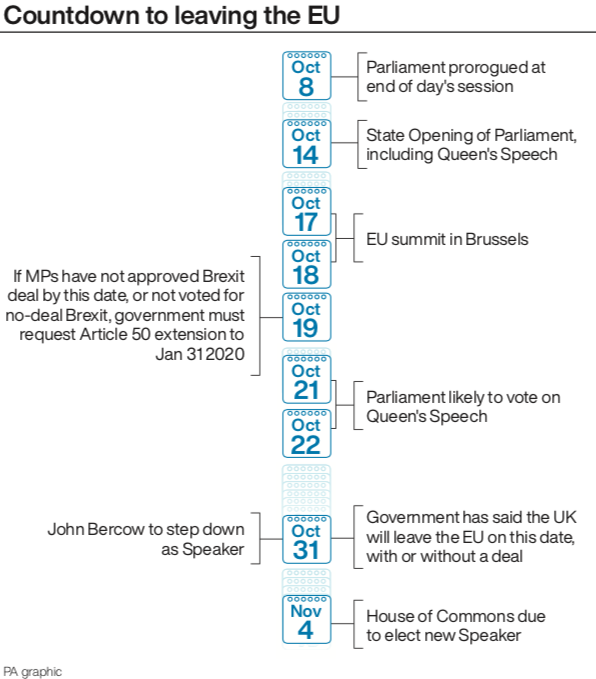
European Commission President Jean-Claude Juncker also said that if negotiations fail, "the explanation will be found in the British camp (because) the original sin is found on the islands and not on the continent”.
Speaking to the French Les Echos newspaper, Juncker added: "A no-deal Brexit would lead to a collapse of the United Kingdom and a weakening of growth on the continent.”
Mr Johnson also hosted European Parliament President David Sassoli in Downing Street on Tuesday, but the MEP left saying "no progress" had been made.
Mr Sassoli later told the BBC’s Newsnight: "Angela Merkel's opinions must be taken seriously. We are all very worried because there are only a few days left.
"Because we understand that going out without an agreement leads to having a real problem, if not a real catastrophe.”
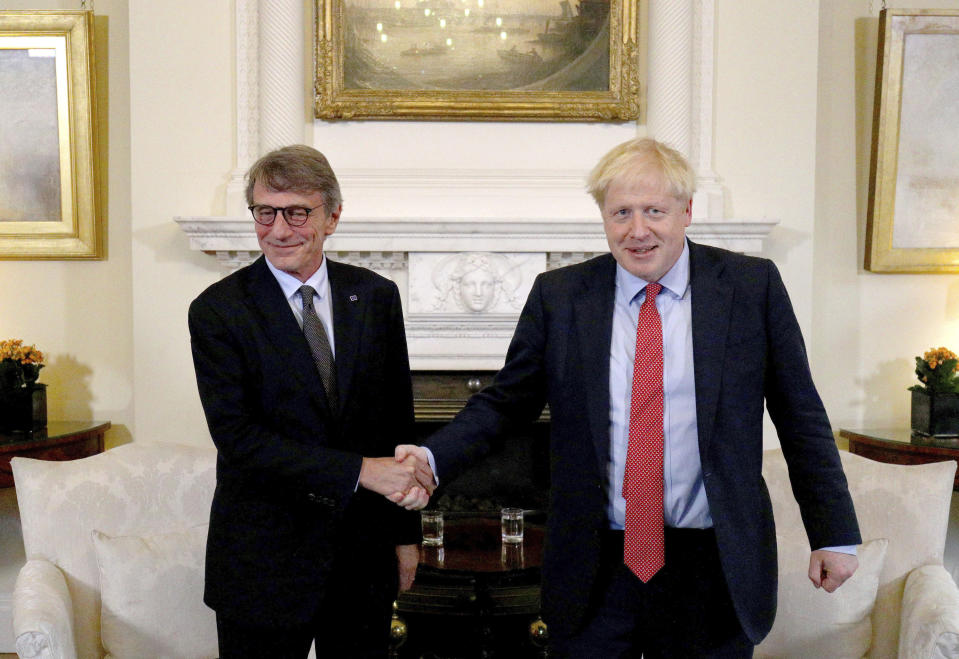
Playing hardball
The PM needs a deal sorted by the end of October 17/18 if he is to avoid a dilemma over the Benn Act, which requires him to seek a further Brexit delay if he cannot get a deal by October 19, a move he has ruled out taking.
Mr Johnson reiterated to Mr Sassoli his warning that the UK would leave by the Halloween deadline regardless of whether a deal was in place.
No 10’s hardball tactics have even alarmed some ministers, after sources said Britain could break off security co-operation with the EU if it was prevented from leaving on 31 October.
Northern Ireland Secretary Julian Smith tweeted that "any threat on withdrawing security co-operation with Ireland is unacceptable”.
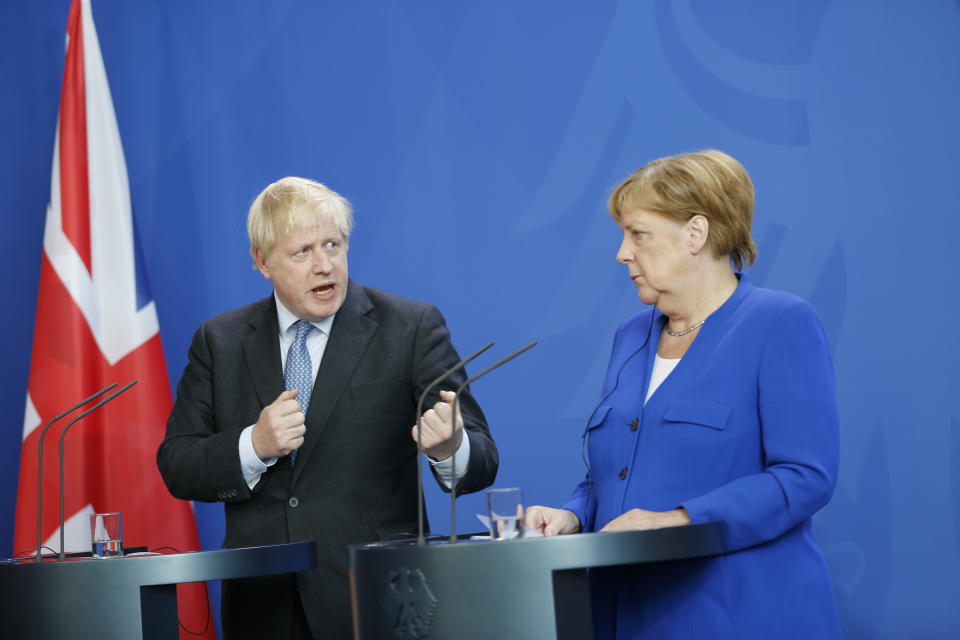
The Merkel row
The dramatic escalation in the war of words between Brussels and London followed a telephone call on Tuesday between Mr Johnson and Mrs Merkel to discuss the latest UK proposal to resolve the deadlock over the Northern Ireland backstop.
EU leaders have dismissed the plan as it would mean the return of customs checks on the island of Ireland, albeit taking place well away from the border between the North and the Republic.
A No 10 source said Mrs Merkel had told the Prime Minister that Ireland must at least have a veto on Northern Ireland leaving the EU with the rest of the UK.
The PM's official spokesman acknowledged there had been a "frank exchange" with Mrs Merkel and that the talks had reached a "critical point", but refused to be drawn any further on the source’s claims.
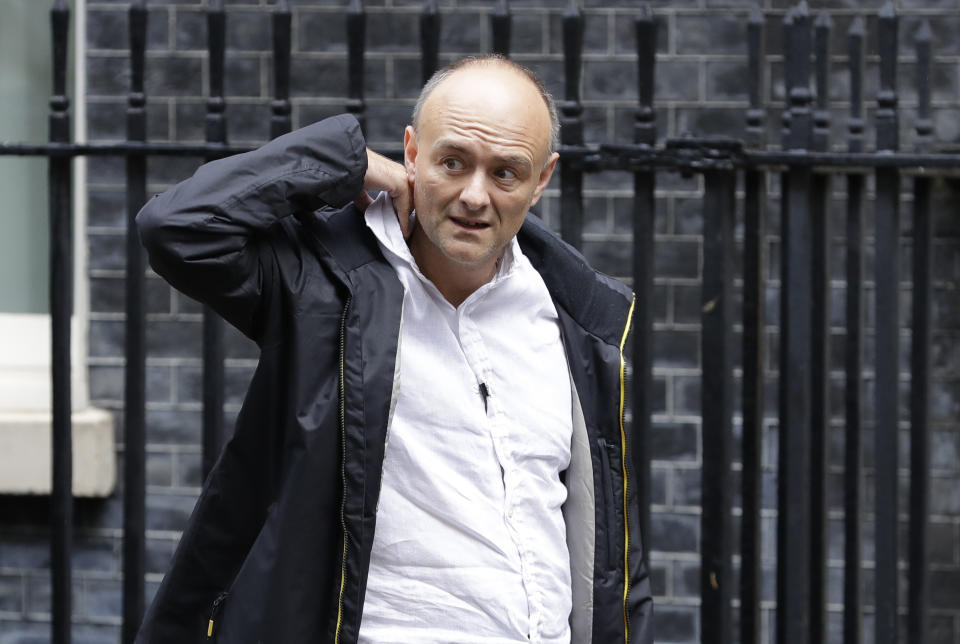
‘Hostile interference’
The row with Mrs Merkel followed another briefing from a No 10 source to The Spectator magazine that claimed the government could do "all sorts of things" to get around the Benn Act, which requires the PM to seek a further Brexit delay if he cannot get a deal by October 19.
The source – widely thought to be Mr Johnson's chief adviser Dominic Cummings – said it would treat any support by EU leaders for a new extension as "hostile interference" in UK politics, and that future defence and security co-operation would "inevitably" be affected.
"We won't engage in further talks, we obviously won't given any undertakings about co-operative behaviour, everything to do with 'duty of sincere cooperation' will be in the toilet," the source said.

 Yahoo News
Yahoo News 
